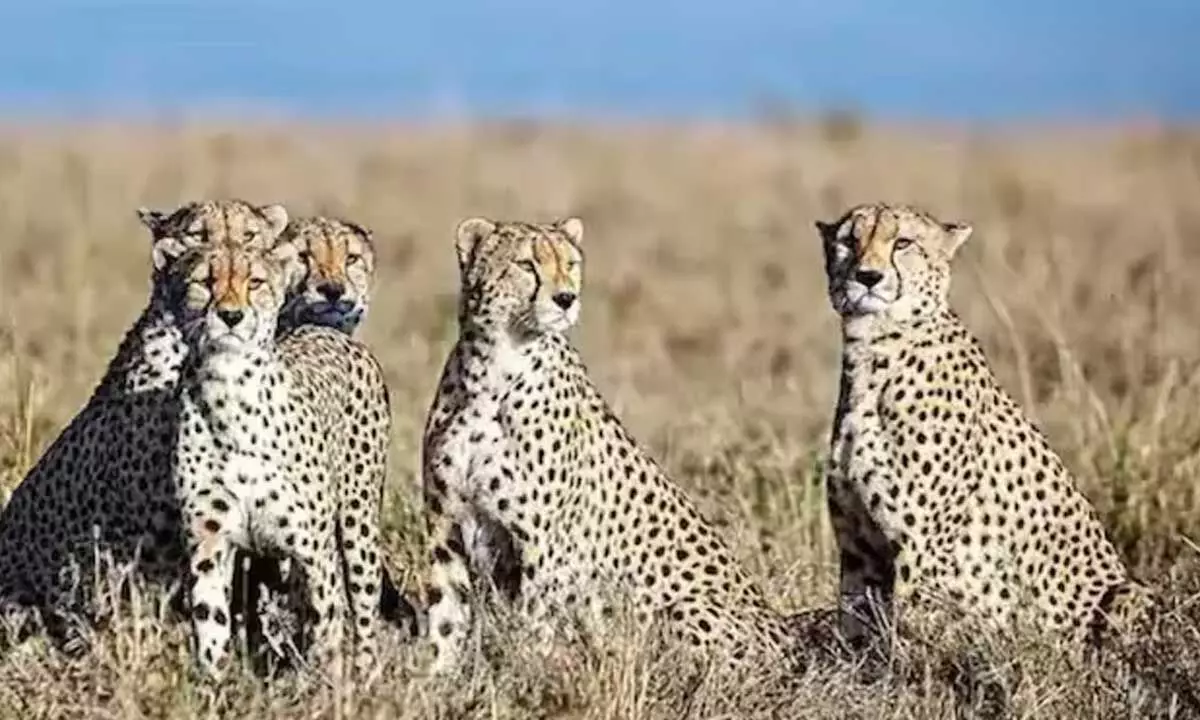Why are we killing African Cheetahs like nobody's business ?

A J T Johnsingh, a Distinguished Wildlife Biologist and Honorary Associate of NCF, who is also the scientific advisor to WWF, India, had several times cautioned the country not to relocate the African Cheetahs in our forests for various reasons.
A J T Johnsingh, a Distinguished Wildlife Biologist and Honorary Associate of NCF, who is also the scientific advisor to WWF, India, had several times cautioned the country not to relocate the African Cheetahs in our forests for various reasons.
One of the foremost arguments he had put forth, as other committed conservationists like Valmiki Thapar have also been arguing, is that we don't have any habitat to ensure natural reintroduction. "We do not have the prey species nor the space for the cheetahs to grow in numbers".
Still, why are we killing these innocent cheetahs? What gives us the right to experiment with their lives with little knowledge or interaction with the animals?
A majority of the world’s 7,000 cheetahs live in South Africa, Namibia and Botswana. Namibia has the world’s largest population of cheetahs. The cheetah is the only large carnivore that got completely wiped out from India, mainly due to over-hunting and habitat loss. Official records show that the last spotted feline died in 1948 in the Sal forests of Chhattisgarh’s Koriya district.
What is wrong with the Indian landscape as far as the cheetah is concerned? Well, we just don't have a suitable habitat for them to survive here. Kuno (where these were introduced recently) is partly a hilly area. It is also densely wooded. It is, in addition, too hot temperature wise for the cheetah to survive.
Contrary to the popular opinion, cheetahs are timid animals and they do not even venture to attack human beings. The authorities keep arguing that cheetahs have been released in degraded grasslands of Kuno. Really? Is Kuno-Palpur a grassland? This is suitable for the Ranthambore tigers to migrate but not for the cheetahs to survive. Cheetahs could be killed by ordinary wild dogs which abound in our country. This apart, a cheetah is an easy prey to the lions and tigers which take its kill.
For cheetahs to survive we need to have a huge population of chinkara or baby goats. We don't have it here. These delicate animals can't sprint on the hard rocky soils as they need a soft earth beneath their legs.
Despite such hostilities that confronted the African cheetahs in the country we senselessly went ahead with the project only to see those beautiful creatures perish one after another. Today we are looking for solutions under the collar belts of these animals.
One question that has never been answered is whether any of the officials has spent a considerable time with the cheetahs to understand their needs and habits. Cheetahs' presence in this country is not going to strengthen conservation and the local economy as has been thought but will only result in a tragedy for the animals whose survival has become very difficult elsewhere.
India's very own, Asiatic cheetah, a subspecies only survives in Iran and even here its numbers are not much. The premature reintroduction plan has not considered several aspects in preserving this species too. Cheetahs cannot be domesticated that easily. They need to move about and they do so. A densely populated country like ours will not be sympathetic to its sight at all.
Ullas Karanth, emeritus director for the nonprofit Centre for Wildlife Studies and a specialist in large carnivores, had also expressed his reservations about the project. "I don't oppose it. But, I am against the tunnel vision in just relocating those by dumping in the middle of India where there are 360 people per square kilometer (today it is about 412 per Sq Km)". What he clearly meant was that India was putting the cart before the horse in this experiment.
This human population issue has also been referred to by independent conservation scientists of the country who opposed the project saying "cheetahs in India perished for a reason - human pressure. It only has gotten worse now after independence. So why was this taken up at all?
The government officials always dismiss such objections as 'nitty gritty' as it is their pet project aimed at not conserving the animal but pleasing their political bosses.
Agreed, this is not a new idea. Indian politicians and officials talked of it in the early 50's too terming it as a bold experimentation to preserve the cheetah. Records also show that our officials came close to clinching a deal with Iran
in exchange for lions. The revolution in Iran wiped out the prospect then. The idea was revived again in 2009. It was opposed even then by some sensible conservationists but they were simply ignored.
There was a legal angle to it too and some Supreme Court intervention in between. Finally, here we are, happily killing the cheetahs without a bullet. A great job sir !

